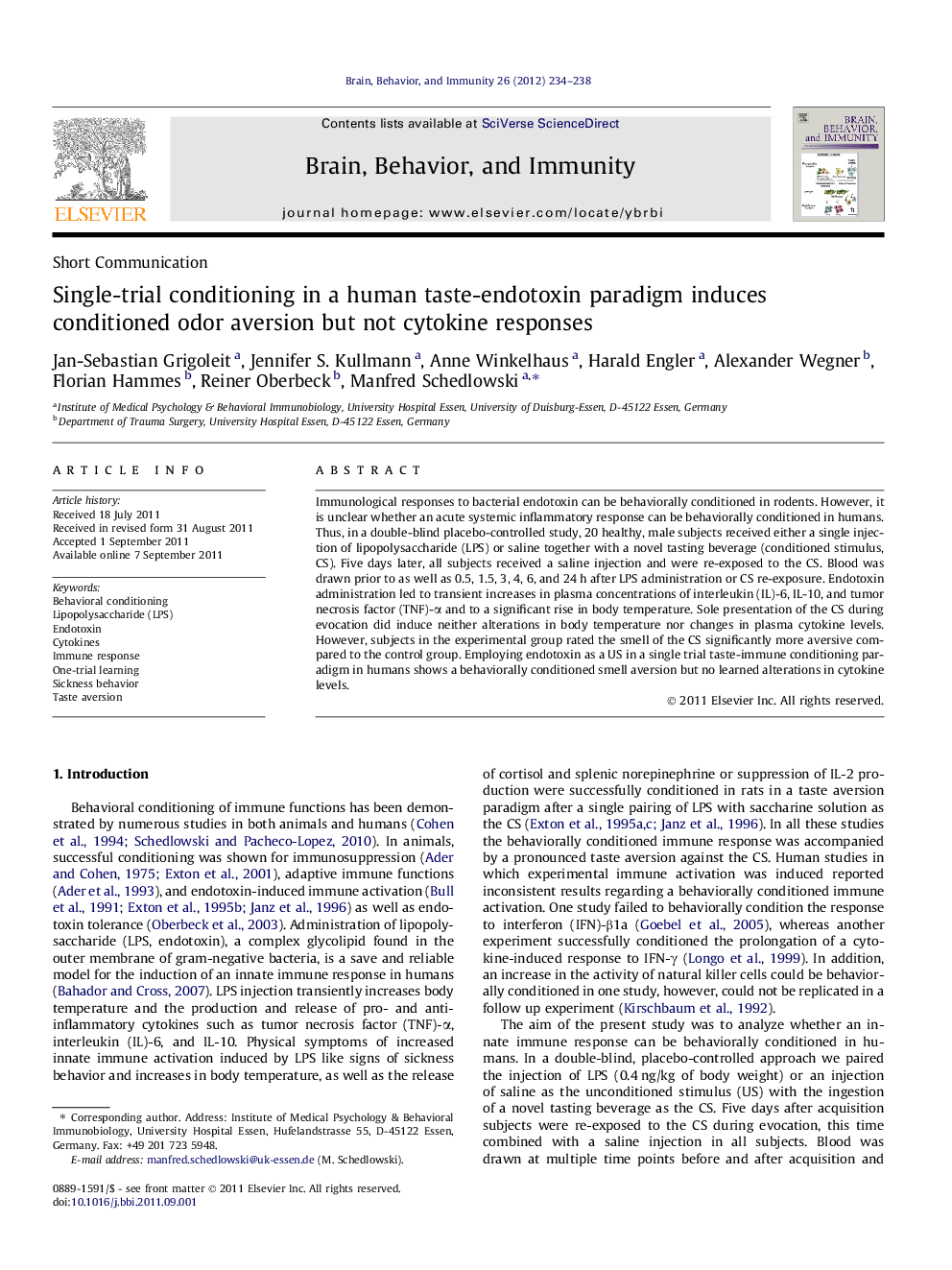| Article ID | Journal | Published Year | Pages | File Type |
|---|---|---|---|---|
| 922245 | Brain, Behavior, and Immunity | 2012 | 5 Pages |
Immunological responses to bacterial endotoxin can be behaviorally conditioned in rodents. However, it is unclear whether an acute systemic inflammatory response can be behaviorally conditioned in humans. Thus, in a double-blind placebo-controlled study, 20 healthy, male subjects received either a single injection of lipopolysaccharide (LPS) or saline together with a novel tasting beverage (conditioned stimulus, CS). Five days later, all subjects received a saline injection and were re-exposed to the CS. Blood was drawn prior to as well as 0.5, 1.5, 3, 4, 6, and 24 h after LPS administration or CS re-exposure. Endotoxin administration led to transient increases in plasma concentrations of interleukin (IL)-6, IL-10, and tumor necrosis factor (TNF)-α and to a significant rise in body temperature. Sole presentation of the CS during evocation did induce neither alterations in body temperature nor changes in plasma cytokine levels. However, subjects in the experimental group rated the smell of the CS significantly more aversive compared to the control group. Employing endotoxin as a US in a single trial taste-immune conditioning paradigm in humans shows a behaviorally conditioned smell aversion but no learned alterations in cytokine levels.
Highlight► Pairing of an endotoxin injection with a novel-tasting beverage in humans elicited conditioned odor aversion but not conditioning of immune functions.
